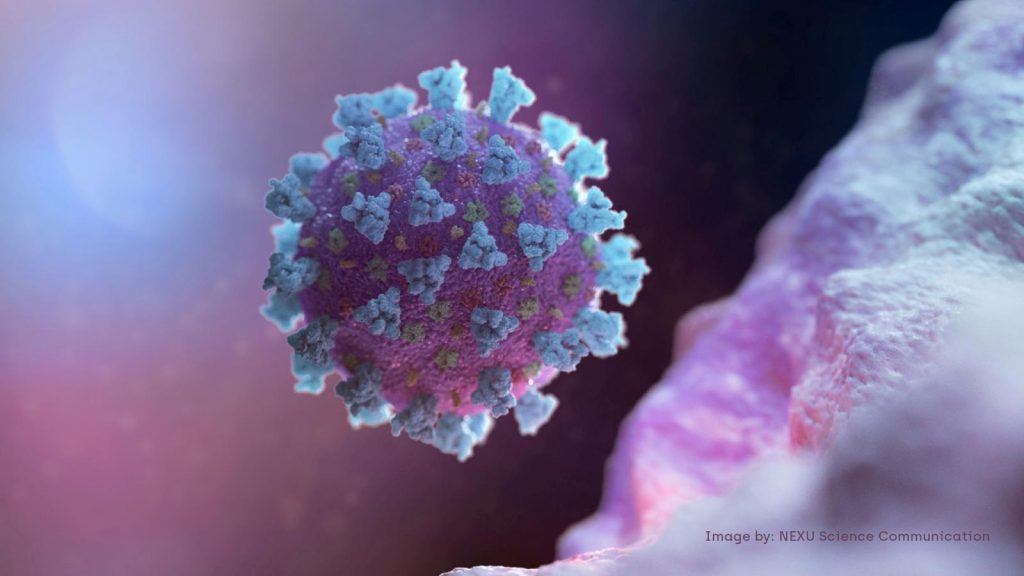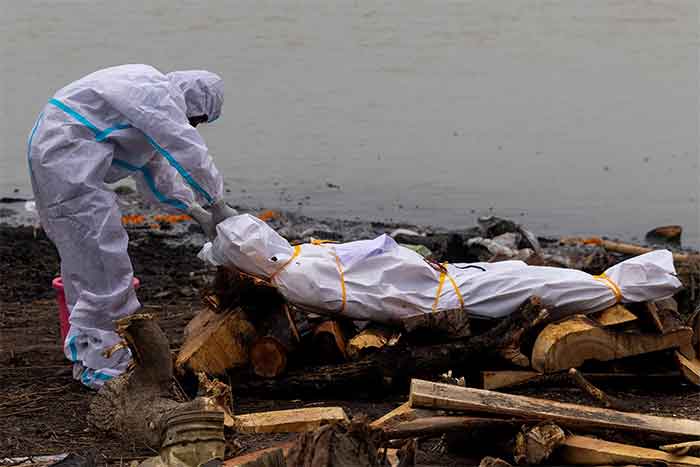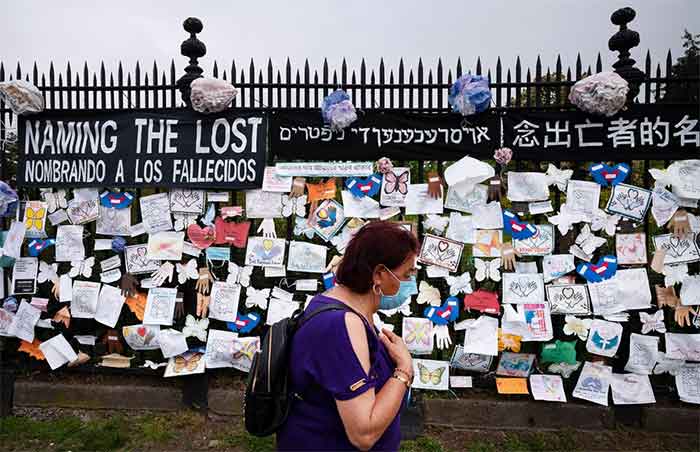
There are more things in heaven and earth, Horatio,
Than are dreamt of in your philosophy.
– Hamlet (1.5.167-8), Hamlet to Horatio
Shakespeare’s Hamlet might have much to sneer about given his mental state and the context in the play of that name. His words are loaded with irony and sarcasm, no doubt. Perhaps the actor also would be advised by the director to stress the last word while delivering the dialogue. “Philosophy,” that stands for knowledge, rational inquiry and the accumulated reasoning wealth of the Enlightenment. Yes, indeed it appears so truthful and befitting for our times too. Reeling under a virus attack if we are to survive the Covid 19 we certainly need to change our perspective. It would aid us if we were to recall that both Horatio and Hamlet were scholars fresh from the University. Much have we learned, much we have transferred to the next generation but have we learned enough, have we handed over enough? In my own life I have a clear picture of five decades of history and all I can see is the graph of human awareness staying where it was, not moving an inch or an ounce.
The gravity of the situation is yet to be realised by the people at large. For those who can afford the luxury of living away from all, this is just another holiday, and like the causality of a storm or a tsunami will blow over soon enough. For those who cannot afford to do that there is always the faith of the ignorant—tomorrow everything will clear. Many among us will fall back on our Hollywood dreams, where even the most catastrophic of cataclysms may not end the world but will soon clear away. All will be well. Hopefully, this too shall pass.
Well, if it does not pass, and things are going awry, we too shall pass. But life will go on. However, as we all hope and pray, if this dire situation does indeed pass us by, will we all emerge as different human beings fresh from our period of introspection?
It is said that insects like the Cockroach can survive even a nuclear explosion. If some sort of chemical warfare were to annihilate life as we know it from the face of the earth, insects will take over the world. There will be new crop of life a new evolution. A new history bereft of human beings. Our world will pass, we too shall pass. Now suppose Covid virus does manage to kill us all, our world outside will continue to exist. Because only humans are affected, there will be animals, there will be trees, there will be grass, there will be birds and song and insects. There will be sun rise and sun set, life will go on as usual. You and I may not be there, and yet our trace will linger.
When I step into my library, I look around at the shelves loaded with books. I pull out a classic, an Everyman’s library edition, and I find this proudly printed on the back cover: “A cosmic convulsion might utterly destroy all the other printed works in the world, and still if a complete set of Everman’s library floated upon the waters enough would be preserved to carry on the unbroken tradition of literature!”
Yes, that might be true. Our own bloated up sense of self-esteem might lead us to state this of several other stuff, books or otherwise. But then what is the use of leaving behind the trace of a mysterious font that wouldn’t make any sense to any living creature after a cataclysm? In the Hollywood film, The Day After, where a handful of young people are caught inside the Library, they begin to burn books to keep themselves warm. Plato, Nietzsche and the Bible are all grist to the mill—all books burn alike. Our wealth of wisdom which we are so proud of is just nothing. Because there are indeed more things on heaven and earth….
What is the earthly use of all that we have accumulated all that we have amassed? A simple cold virus can erase our history, our culture, our civilization! The world might not end with a bang but only with a whimper!
My father in law was a physician who was used to swear by medical science. He used to state that the common cold was something for which they had found no remedy yet. “If it were untreated it will go only after seven days, but if you treat it, the cold will go off in a week!” It is a win for medical science. Now the Covid virus, as we all know, is another variant of the common cold, and it appears to have come to stay. The solution for our survival is to keep clean and not be carriers ourselves. It is not mortality that we are frightened of but the manner in which it spreads. We need to mend our ways.
Ecologists and environmentalists have been for generations yelling at the top of their voices cautioning, warning, and alerting us against the rash and blind march of our destructive and utilitarian culture. The entire world is a web of life. Everything is interconnected. We are also an integral part of this living web. We cannot afford to live on in negligence and unconcern. All living need to be responsible living. All problems of existence are problems of harmony! We need to strike a balance within and without. Did we listen, did we heed? We have lived on polluting our earth, our waters and our air. We have burdened the earth and space with our garbage and waste. We have managed to wipe off a considerably sizeable wealth of our fellow specie, and elbow our way through. We have reached the pinnacle of our history and we could boast of the end of history!
All our life had been one dash for our own blind successes. We did not care for the less fortunate; we divided our societies into rich and poor, men and women, the haves and have-nots. We lived on despite the realisation that all around us we have nothing but suffering death and decay. We turned a blind eye to the wisdom of the past that warned us to take heed and listen to the footfalls of the universal being, a divine creatrix, the rhythm of the cosmos. For us nothing mattered. Until now. When all of a sudden we start falling sick because of an invisible virus. Isn’t it our own creation? Isn’t it what perhaps the earth appears to tell us, to warn us, to stop us?
There have been many old world prophets who predicted doom and destruction in the end of it all. They prophesied doomsday and the day of reckoning. There are several such prophets in the present too who see this Covid attack as a forewarning too. They are all about. They site old prophetic texts like that of Nostradamus, or the Mayan calendar on apocalypse. There are also those fundamentalist believers who proclaim disaster for the unbelievers. Let their beliefs save them. The Covid situation is definitely not a situation of belief or faith but one that rose out of practice and performance. It is our actions that resulted in this (do not read Karma!) and by mending our ways we can survive and prevail.
First of all, we need to discriminate between knowledge and wisdom. We have been living in an age of information and knowledge, where the intellect has led us from the front. We had pushed aside our feelings and intuition as less important. We need a shift in perception that would entail a shift in our pace of life. Our knowledge, our “Philosophy” is insufficient to comprehend the cosmic truth. And anyway who gathers wisdom from the printed page these days? Things have come to such a pass that the Google and Wikipaedia are the most often consulted pages. Even wisdom comes in short paragraphs for us. Facebook and social media are the dispensers of wisdom nowadays. Have we spent enough time to pass on our gathered wisdom to the next generation yet? Or are they grappling with shadows just like us?
Our perceptions are clouded by our avidya, our nescience. Our history is a track record of our wayward plunge, our future lies in our reorganisation of our priorities. Building big and bigger cities and highways and dams and projects may not proffer us a better living space, but living inward might lead us to better havens. A life lived in harmony with all and everything would lend us true happiness and bliss rather than a disjointed life with regrets and misgivings. Our contempt for religions and their cautions might be well founded and reasonable, but disregarding their fundamental truths and findings has cost us dear. No true religion has ever instigated violence and bloodshed. The core text of all human religions has insisted on harmony and compassion to all fellow creatures. But the error lies in the interpretation and reading. Loaded by self-aggrandisement and goaded by greed human beings have succeeded in throwing mud and muck on all religions. The spirituality that forms the ground of all religious beliefs has been left to decay at the rock bottom our clumsy histories. Love, compassion, understanding and tolerance are casually flung aside in the ravenous plunge of our rat races. Eat, drink, make merry at the cost of everyone else—that seems to be the motto of our generation. Our educational systems are deformed and our mode of transference of our knowledge decadent on account of our own misdeeds. What angel can save our next generation?
Our gods are dead and buried. But their thrones are taken over by those among us who think they are smarter because they are callous and can trick their way upward. The poet’s words: That men may rise on stepping-stones/ Of their dead selves to higher things.. is misconstrued. Man (gender pun) does manage to rise up on another’s corpse! We call that rat race or competition. We accept it as natural too. We cite Charles Darwin to underscore the survival of the fittest . Of course it is natural, but so is compassion and pity and love. We conveniently lay aside all positive values and virtues as trash when it comes to our own self-promotions. After all when one preaches it is only for the other! And all religions in their everyday practice are false! Why turn to another?
Now, if and when the present virus scare lifts and we return to our normal lives with inside and outside mobility, it would do well to recall these days of imposed incarceration. Some among us as I have pointed out might emerge unchanged—because they are anyway so full of themselves that they cannot change. Many might put on airs of know-it-all. Their attitude reflects a most widely held notion in these dragon-ridden present—the traditional “Indian” way of life of staying at a suitable personal distance and bringing ones arms together in saying “Namaste” as greeting rather than hugging or shaking hands, eating sparse meals, professing vegetarianism etc—these are re-invoked.
There are others who would point out that what had come to pass was nature’s own method of retaliation, nature’s punishment for human vagaries etc. Some others might argue about the socio-political intrigue in the whole situation. Life might go on.
Whatever be the cause and concern it would augur well if we were to use these times to do our own introspection. Many people are sorely troubled when asked to stay at home. They suddenly feel as if they are jailed. They have mislaid the pleasures of spending time with family and friends. They are afraid of looking at one another in the eye. They are afraid of the silence within. I had a friend who later became a naturalist of considerable renown. But I remember that whenever we went trekking into the jungles as young people, he would get jittery at the silence among the hills and trees. He would yell at the top of his voice sing some song or just say something very loud to break the monotony of silent spaces. There are many among us who are like him. Perhaps we have not yet discovered the silence at the heart of things. One doesn’t have to be a spiritual person in order to do some meditation. As a matter of fact our thinking selves, our self-consciousness, is built as two pronged—it is not merely a light reflecting on outer phenomena. Once we are able to evoke that inner silence our genuine self-reflective process begins. Tat Tvam Asi, says the Upanishad, that thou art, you are that. Socrates said: the unexamined life is not worth living. Shall we begin our process of self-discovery here? This is the point where inside meets outside. In the final analysis there is little difference between inside and outside. During Hindu death ceremonies there is a practice of breaking a mud pot which calls attention to this seldom realised truth. However, currently, like Hamlet in the play, our conscience is running about chasing phantoms and exploring unseen truths. However, when we awake to such realisation that there are more things that we have known or can know, we are on a path toward genuine action. Arguments and debates at the intellectual level is one thing, realisation at the experiential plane another. Has the present situation proffered us such a possibility?
Dr. Murali Sivaramakrishnan, Professor and former Chair, Department of English,Pondicherry University
SIGN UP FOR COUNTERCURRENTS DAILY NEWS LETTER

















































